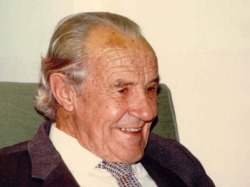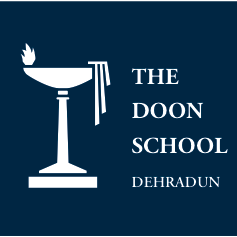
Bachendri Pal is an Indian mountaineer. In 1984, she became the first Indian woman to climb the summit of the world's highest mountain, Mount Everest. She was awarded the third highest civilian award in India, Padma Bhushan by the Government of India in 2019.

Major Hari Pal Singh Ahluwalia was an Indian mountaineer, author, social worker and Indian Ordnance Factories Service (IOFS) officer. During his career he made contributions in the fields of adventure, sports, environment, disability and social work. He is one of six Indian men and the twenty first man in the world to climb Mount Everest. On 29 May 1965, 12 years to the day from the first ascent of Mount Everest, he made the summit with the fourth and final successful attempt of the 1965 Indian Everest Expedition along with H. C. S. Rawat and Phu Dorjee Sherpa. This was the first time three climbers stood on the summit together.

Captain Mohan Singh Kohli is an internationally renowned Indian mountaineer. An officer in the Indian Navy, who later joined the Indo-Tibetan Border Police, he led the 1965 Indian expedition which put nine men on the summit of Everest, a world record which lasted for 17 years.

Harish Chandra Singh Rawat was a mountaineer who climbed the Mt. Everest in 1965. He was one of the 9 summiters of the first successful Indian Everest Expeditions that climbed Mount Everest in May 1965 led by Captain M S Kohli. He is the 7th Indian man and 22nd man in world that climbed Mount Everest. On May 24, 1965 Vohra and Ang Kami Sherpa together reached the top of Mount Everest On May 29, 12 years to the day from the first ascent of Mount Everest the fourth and last summit team with Major H. P. S. Ahluwalia and Phu Dorjee Sherpa, Rawat reached on the summit. This was the first time three climbers stood on the summit together.

Narendra Dhar Jayal (Nandu Jayal) (25 June 1927 – 28 April 1958) was an Indian mountaineer and an officer of the Bengal Sappers and the Indian Army Corps of Engineers. He is credited with pioneering and patronizing early post-Independence mountaineering in India, and was the founder principal of the Himalayan Mountaineering Institute. He encouraged the youth of India to take up mountaineering, and has been called the "Marco Polo of Indian Mountaineering".

John A. K. Martyn OBE (1903–1984), was an English schoolmaster, scholar, academic and a distinguished British Himalayan mountaineer. He was the second headmaster of The Doon School.

Gurdial Singh was an Indian schoolteacher and mountaineer who led the first mountaineering expedition of independent India to Trisul in 1951. In 1958, he led the team that made the first ascent of Mrigthuni . In 1965, he was a member of the first successful Indian expedition team to climb Mount Everest.

John Travers Mends Gibson was an English schoolmaster, scholar, academic and a distinguished British Himalayan mountaineer.
Colonel Narendra Kumar, PVSM, KC, AVSM, FRGS was an Indian soldier and mountaineer. He is known for his expeditions across various mountain ranges such as the Himalayas and Karakorams, and respective subranges such as the Pir Panjals and Saltoro Mountains. His reconnaissance efforts on the Siachen glacier were key to the Indian Army's reclamation of the forward posts of the glacier in Operation Meghdoot in 1984. He was the deputy leader of the first successful Indian Mount Everest expedition in 1965.

Sonam Wangyal is a former Indian paramilitary personnel and mountaineer who climbed Mount Everest in 1965 at the age 23, making him the youngest summiter. He was one of the nine summiters of the first successful Indian Everest Expeditions that climbed Mount Everest in May 1965 led by Captain M S Kohli,. He is the 3rd Indian man, and 18th man in world, to have climbed Mount Everest. On 22 May 1965, the first time that the oldest and the youngest climbed Everest together.

Mountaineering is quite popular in India, since the entire northern and north-eastern borders are the Himalayas, the highest mountain range in the world. The apex body in India is the Indian Mountaineering Foundation, which is affiliated to the International Federation of Sport Climbing.

Chandra Prakash Vohra is an Indian geologist, glaciologist and mountaineer who climbed Mount Everest, the highest peak in the world, in 1965. He was one of the 9 summiters of the first successful Indian Everest Expeditions that climbed Mount Everest in May 1965 led by Captain M S Kohli.On May 24 th 1965 Vohra and Ang Kami Sherpa together reached the top of Mount Everest,. He was the first Indian civilian to scale the peak a feat he accomplished on 24 May 1965. A winner of the Arjuna Award (1965), and the National Mineral Award, Vohra was honoured by the Government of India in 1965, with the award of Padma Shri, the fourth highest Indian civilian award,. He is the 4th Indian man and 19th man in world that climbed Mount Everest.

Sonam Gyatso (1923–1968) was an Indian mountaineer. He was the 2nd Indian man, the 17th man in world and first person from Sikkim to summit Mount Everest, the highest peak in the world. He was one of the nine summiters of the first successful Indian Everest Expeditions that climbed Mount Everest in May 1965 led by Captain M S Kohli. The first time that the oldest man at the time, Sonam Gyatso at age 42, and the youngest man Sonam Wangyal at age 23, climbed Everest together on 22 May 1965. He became the oldest person to scale the peak in 1965 and when he spent 50 minutes at the peak, he set a world record for spending the longest time at the highest point on Earth. The Government of India awarded him the third highest honour of the Padma Bhushan, in 1965, for his contributions to the sport of mountaineering.

Indian Mountaineering Foundation is an apex national body which organize and support, mountaineering and rock climbing expeditions at high altitudes in the Himalayas. The organization also promotes and encourages schemes for related adventure activities and environment-protection work in the Indian Himalayas. IMF has organized many expeditions to the high peaks in the Himalayas including Mount Everest.
Ang Tshering was a sherpa known for his participation in the 1924 British Mount Everest expedition and the 1934 Nanga Parbat climbing disaster.
The role of The Doon School in Indian mountaineering describes the formative links between The Doon School, an all-boys boarding school in Dehradun, India and early post-Independence Indian mountaineering. From the 1940s onwards, Doon's masters and students like A.E. Foot, R.L. Holdsworth, J.A.K. Martyn, Gurdial Singh, Jack Gibson, Aamir Ali, Hari Dang, Nandu Jayal, were among the first to go on major Himalayan expeditions in a newly independent nation. These early expeditions contributed towards laying the foundation of mountaineering in an independent India.

The 1965 Indian Everest Expedition reached the summit of Mount Everest on 20 May 1965. It was the first successful scaling of the mountain by an Indian climbing expedition.

Ang Kami Sherpa was the member of the third Indian Everest expedition, led by Captain M S Kohliin 1965 which was first Indian successful Everest Expedition climbed Mount Everest, consisted of 21 major expedition members and 50 Sherpas. The initial attempt was at the end of April 1965, when they returned to base camp due to bad weather and waited 2 weeks for better weather. Together with C. P. Vohra Ang Kami reached on the summit on 24 May 1965. He is the 5th Indian and 20th person in the world to have climbed Mount Everest.

Jaonli is a 6,632-metre peak in the Gangotri range of Garhwal Himalaya. It was first climbed in 1965 by The Doon School expedition team led by Hari Dang.
















